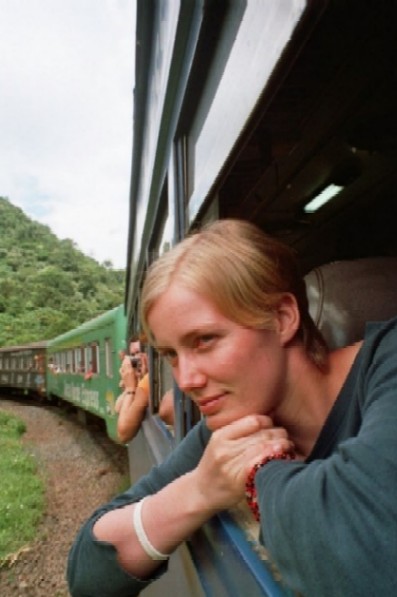martyrs
Tulkarem is full of heroes. They are on concrete walls, on big posters stuck on lamp posts, in golden frames on mantle pieces, on frail, worn pictures kept in an inner pocket. They linger at the edge of every conversation, they have inhabited the way people move, their shake of the head or their careful smile. Tulkarem is full of gaping holes once filled by a father or sister or cousin or friend.
Today in the refugee camp a ceremony was held in honour of Tulkarem's martyrs - those who have died as a consequence of the occupation. Some have been killed while waging armed resistance, others have died in an ambulance at a checkpoint. Today no difference is made. The heroes are honoured. A solemn line of children holds up pictures of those that have been taken away. The families file up to receive an acknowledgement of their loss.
I don't ask too many questions. It is a tricky line to tread - I know some of these people died using a form of struggle I would not agree with. Others are civilians trapped in physical or abstract crossfires, and I wish to honour them.
Most striking are the posters of Saddam. The first week of January saw us drawn into many talks on Saddam. People were angry that he had been killed on the first day of Eid, a festival meant to bring happiness and peace. Many were also angry that he had at all been judged - they dubbed him the father of the nation, a friend, an ally. Where I come from, that is an absurd, preposterous description. But for a people who feel that no-one supports them, the support from the Iraqi ex-leader was exceptional, without equal neither in the West nor among Arab states.
Sometimes, under occupation, you don't ask too many questions, at least not out loud. Your enemy's enemy is your friend and your friend is good, because your enemy is bad.
I have no illusions that Saddam was anything but a bastard, but I can also not deny that to many Palestinians he has given hope and a sense of not being totally deserted. That probably first of all reflects on how the rest of the interational society is perceived around here...
I discussed the posters of martyrs with a friend in Nablus one day - a friend that I can ask all my questions. He shook his head at the posters. "I try to avoid having my picture taken," he said, "because if I die one day at the hand of Israelis, I don't want to be stuck up on one of those lamp posts."
Well, I have a picture of him. But it'll stay in my pocket.
Today in the refugee camp a ceremony was held in honour of Tulkarem's martyrs - those who have died as a consequence of the occupation. Some have been killed while waging armed resistance, others have died in an ambulance at a checkpoint. Today no difference is made. The heroes are honoured. A solemn line of children holds up pictures of those that have been taken away. The families file up to receive an acknowledgement of their loss.
I don't ask too many questions. It is a tricky line to tread - I know some of these people died using a form of struggle I would not agree with. Others are civilians trapped in physical or abstract crossfires, and I wish to honour them.
Most striking are the posters of Saddam. The first week of January saw us drawn into many talks on Saddam. People were angry that he had been killed on the first day of Eid, a festival meant to bring happiness and peace. Many were also angry that he had at all been judged - they dubbed him the father of the nation, a friend, an ally. Where I come from, that is an absurd, preposterous description. But for a people who feel that no-one supports them, the support from the Iraqi ex-leader was exceptional, without equal neither in the West nor among Arab states.
Sometimes, under occupation, you don't ask too many questions, at least not out loud. Your enemy's enemy is your friend and your friend is good, because your enemy is bad.
I have no illusions that Saddam was anything but a bastard, but I can also not deny that to many Palestinians he has given hope and a sense of not being totally deserted. That probably first of all reflects on how the rest of the interational society is perceived around here...
I discussed the posters of martyrs with a friend in Nablus one day - a friend that I can ask all my questions. He shook his head at the posters. "I try to avoid having my picture taken," he said, "because if I die one day at the hand of Israelis, I don't want to be stuck up on one of those lamp posts."
Well, I have a picture of him. But it'll stay in my pocket.





